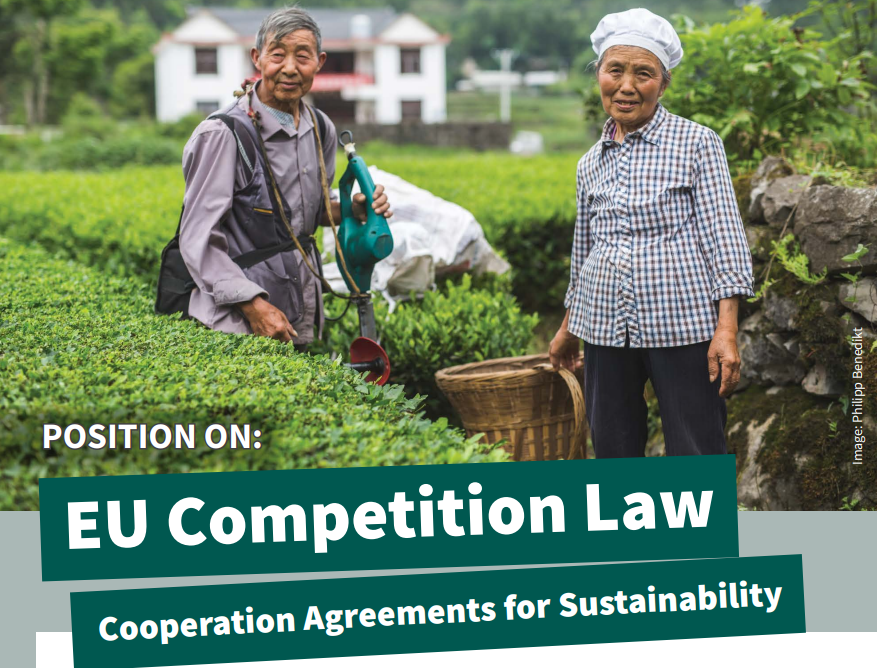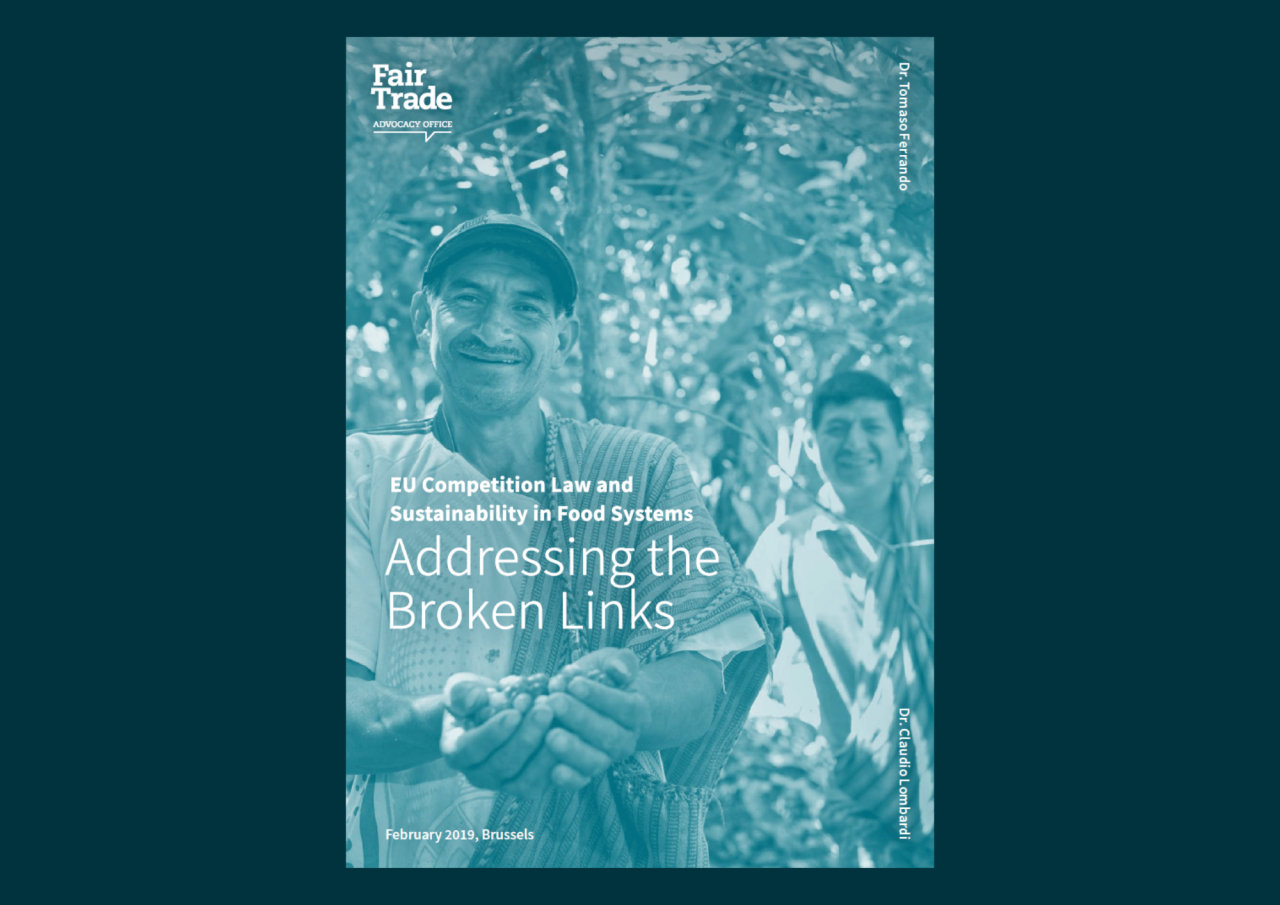Position on EU Competition Law: Cooperation Agreements for Sustainability

EU competition policy is focused too narrowly on ensuring cheap prices and short-term economic benefits to consumers, which makes it difficult to implement multi-stakeholder sustainability agreements, especially those involving competitor cooperation. This approach goes counter to the EU Treaties and the European Green Deal, which foresee that all EU policies should contribute to achieving a sustainable future. EU citizens have an interest in and benefit from a fairer economy and a more sustainable planet, and multi-stakeholder cooperation can sometimes be more desirable or effective than legislation in achieving sustainability objectives, especially in cases where taking action outside the EU’s borders is necessary.
The European Commission now has the opportunity to address the need for legal certainty by including a comprehensive analysis of sustainability agreements in the Guidelines on Horizontal Cooperation Agreements. This would facilitate and encourage genuine multi-stakeholder sustainability agreements involving competitors, while making clear that sustainability cannot be invoked as a smokescreen for anti-competitive behaviour.
More From The Workstream

Summary of Joint Response on the Horizontal Guidelines’ Chapter 9 - Sustainability Agreements by Fair Wear, ISEAL, AIM, and the Fair Trade Advocacy Office

Submission to the public consultation on the revision of the Block Exemption Regulations for horizontal cooperation agreements and the Horizontal Guidelines

How Can the New Competition Tool Help Bridge the Gap Between Sustainability and EU Competition Law?
